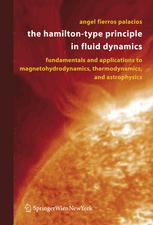

Most ebook files are in PDF format, so you can easily read them using various software such as Foxit Reader or directly on the Google Chrome browser.
Some ebook files are released by publishers in other formats such as .awz, .mobi, .epub, .fb2, etc. You may need to install specific software to read these formats on mobile/PC, such as Calibre.
Please read the tutorial at this link: https://ebookbell.com/faq
We offer FREE conversion to the popular formats you request; however, this may take some time. Therefore, right after payment, please email us, and we will try to provide the service as quickly as possible.
For some exceptional file formats or broken links (if any), please refrain from opening any disputes. Instead, email us first, and we will try to assist within a maximum of 6 hours.
EbookBell Team

4.0
86 reviewsThe objective of this book is to contribute to specialized literature with the most significant results obtained by the author in Continuous Mechanics and Astrophysics. The nature of the book is largely determined by the fact that it describes Fluid Dynamics,Magnetohydrodynamics,and Classical Thermodynamics as branches of Lagrange’s Analytical Mechanics; and in that sense, the approach presented in it is markedly different from the treatment given to them in traditional text books. In order to reach that goal, a Hamilton-Type Variational Principle, as the proper mathermatical technique for the theoretical description of the dy- mic state of any fluid is formulated. The scheme is completed proposing a new group of variations regarding the evolution parameter which is time; and with the demonstration of a theorem concerning the invariance of the action integral under continuous and infinitesimal temporary transfor- tions. With all that has been mentioned before and taking into account the methodsof thecalculusof variationsandtheadequateboundaryconditions, a general methodology for the mathematical treatment of fluid flows characteristic of Fluid Dynamics, Magnetohydrodynamics, and also fluids at rest proper of Classical Thermodynamics is presented.